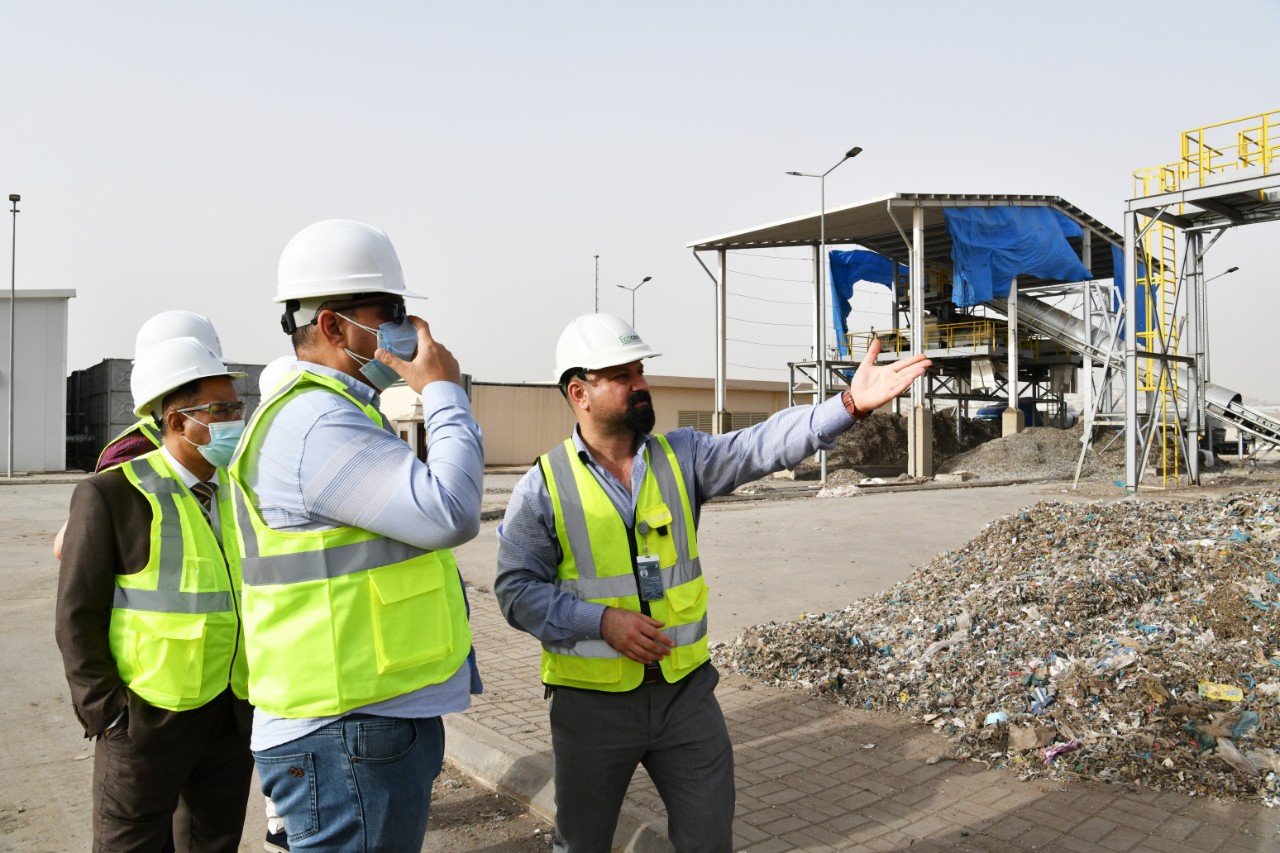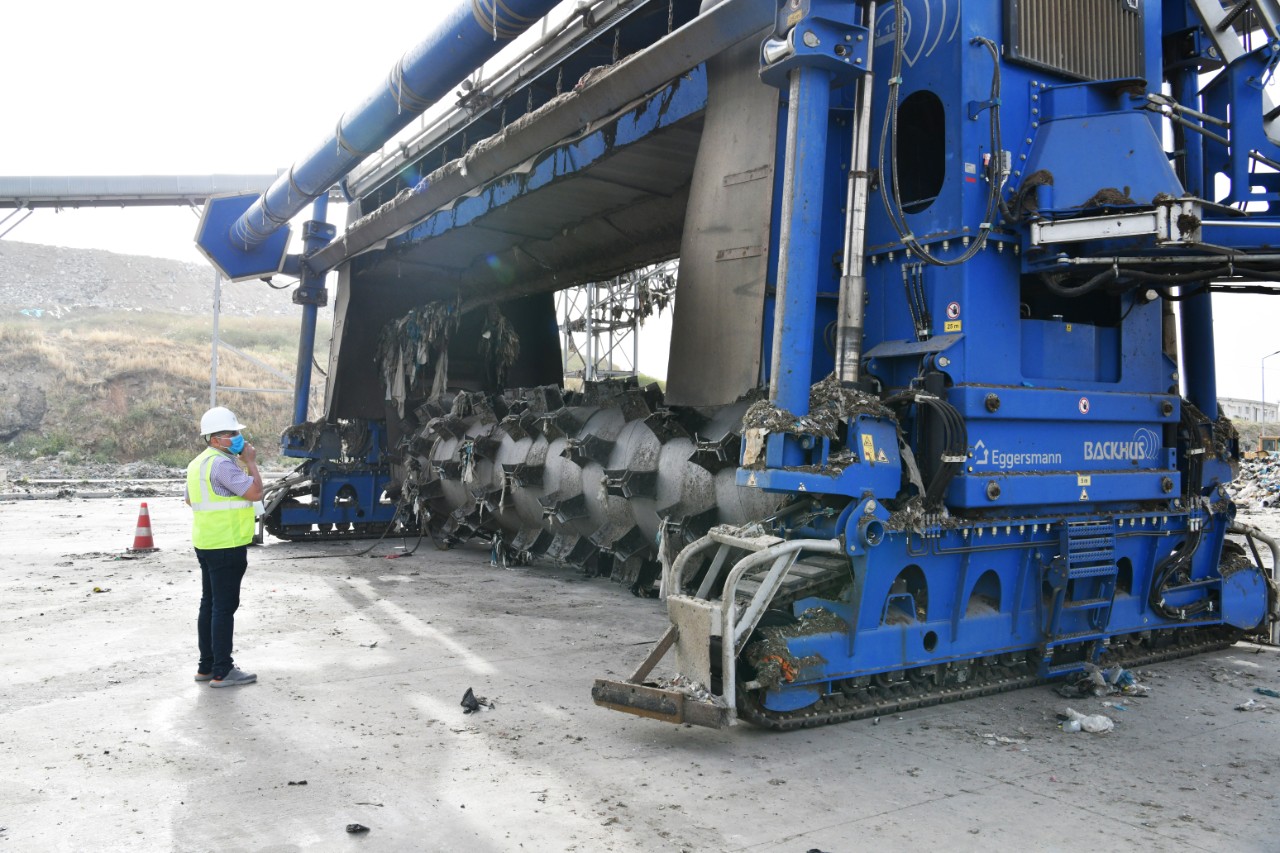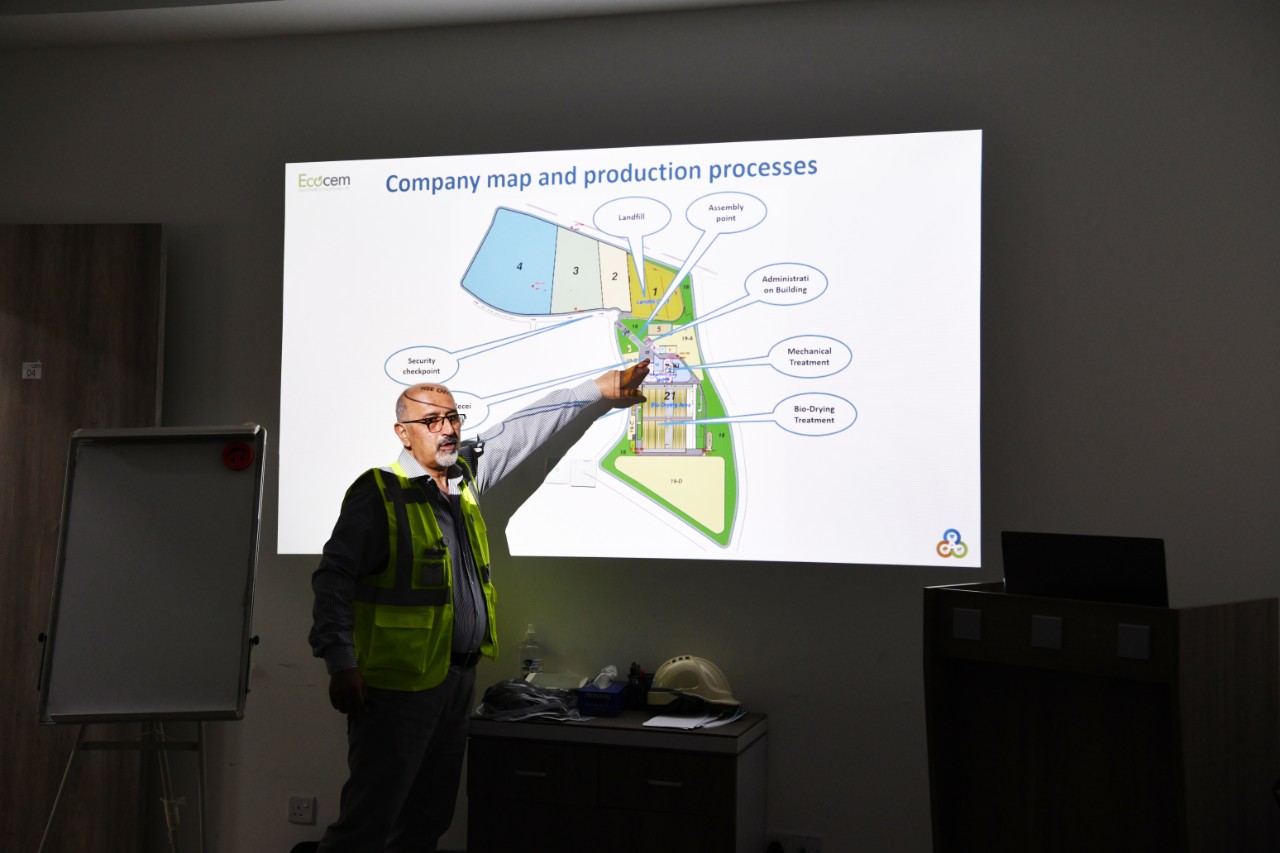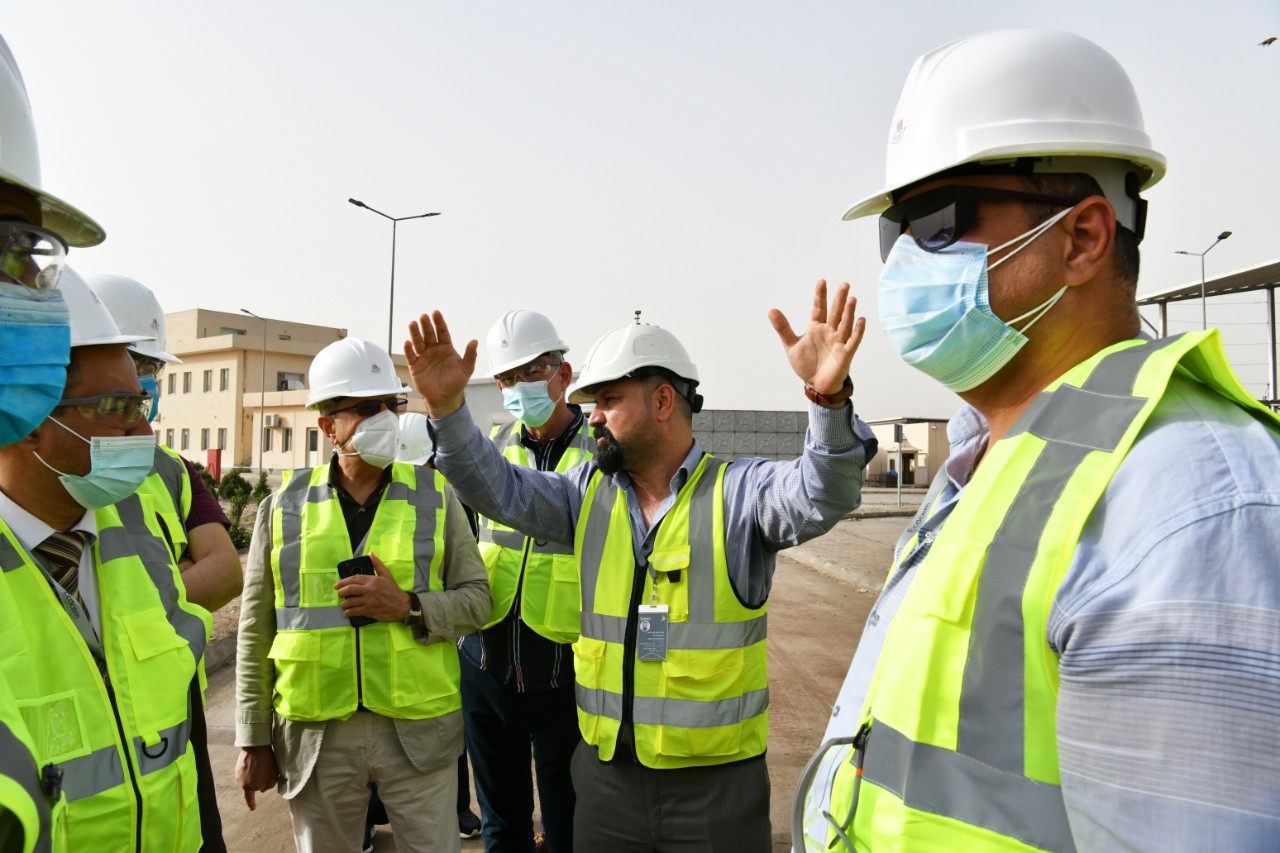Solid Waste, Iraq towards a clean environment
June 12, 2022

Iraq produces around 30,000 tons of solid waste every day.(1) The country lacks real waste management infrastructure to dispose this waste in a proper way that ensures no negative environmental nor health effects, therefore, most of it gets disposed in unregulated landfills. These practices end up costing Iraq a high price when it comes to its commitments to reduce greenhouse gas emissions, in addition to all the pollution of soil and water they directly cause.
Solid waste management is the process through which solid waste is collected, transported and treated.

As part of the peer-to-peer component of UNDP’s Supporting Recovery and Stability in Iraq through Local Development program, funded by the European Union, two waste management projects are being implemented in Nineveh and Thiqar as a partnership between the European peer: PIN Prato of Prato Italy and the local authorities in both governorates.
Pin Prato is the University pole of Prato, a city in Italy with a renowned history of recycling.
The peer-to-peer component is an opportunity to bring European expertise to different Iraqi governorates, and initiate partnerships with the local authorities that support local development in various areas and assist in the process of decentralizing the power from central to local authorities in jointly selected sectors.
The projects are designed to tackle the solid waste issues that both governorates suffer from.
Mosul, the capital of Nineveh governorate, had a functional solid waste collection system before 2014. However, the city’s municipal services, including waste collection, were hit hard as a result of the conflict. Due to the debris of destruction in the city, lack of resources and a growing population (Iraq’s 2nd most populated city), solid waste collection happens at a much lower rate than it once did and not as effectively.

The project in Nineveh, therefore, aims to assist the governorate in reestablishing a system with new added aspects. These include the adoption of an integrated action plan that addresses all the areas of solid waste management, from collection to treatment plant needed, to recovery of current landfill.as well as training the concerned technical staff of the governorate.
Similarly, in Nasiriyah, the capital of Thiqar governorate, most of the solid waste goes to uncontrolled landfills that are close to residential areas or watercourses. Another part of the waste is burned to reduce its volume. The Italian peers have provided a waste management action plan and the equipment necessary to help start the process of separating dry and wet collected waste. Equipment such as electromechanical composter, waste collection truck, bins etc. In addition to training of municipality’s operators on how to operate the machinery and maintain it. The municipality will later take control of the project and run the collection and composting and run the process in its entirety.

Despite the difficulties the country faces when it comes to waste management, similar projects have been implemented throughout Iraq already. Recently, experts from the Italian side and the UNDP team paid a visit to Ecocem, a waste treatment plant in Sulaymaniyah. This plant uses collected waste to produce refuse-derived fuel (RDF) which is used to run cement factories.
The visit was an opportunity for the project partners, Iraqi and Italian, to see a local successful business that is doing an inspiring work in the field of waste management.

 Locations
Locations


